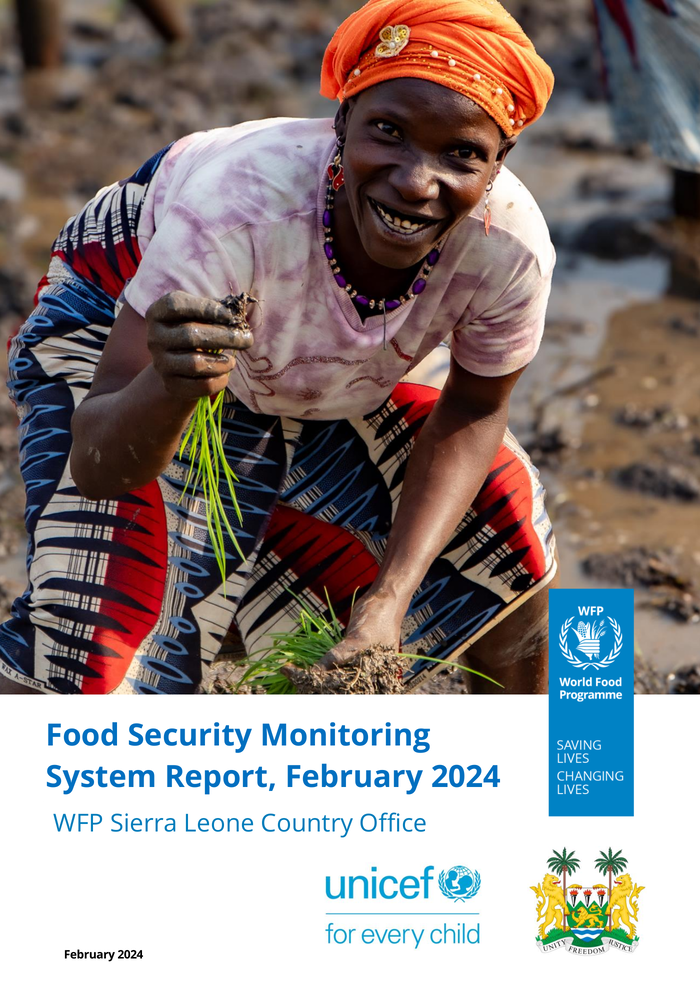The alarming rise in food insecurity in the nation is highlighted in the most recent report from the WFP Sierra Leone Country Office. A startling 82% of people live in food insecurity, with 18% of households being classified as severely food insecure, according to the February 2024 Food Security Monitoring System Report. The global food crisis caused by the Russia-Ukraine conflict and the COVID-19 pandemic has been identified as the main causes of this decline, which represents a major deterioration from earlier assessments.
One encouraging finding from the report is that, as a result of a comparatively good harvest, there has been a minor improvement in food security levels when compared to the previous lean season. Nonetheless, the vast majority of households polled stated that they spent over 75% of their income on food, highlighting the severe financial hardship that many Sierra Leonean families endure.
The report’s nutrition analysis, which indicates a sharp rise in global acute malnutrition rates from 3.1% to 5% in February 2024, is especially alarming. This demonstrates how the population’s health is increasingly at risk due to food insecurity.

The economic aspects of the rising food insecurity are also covered in detail in the report. The cost of staple foods, like rice, has skyrocketed. From January 2023 to January 2024, the price of rice, both imported and local, increased by 31% and 38%, respectively. Household financial strain is further exacerbated by this price surge, which can be attributed to higher freight costs and the depreciation of the national currency against the US dollar.
Furthermore, a sizable portion of the populace consists of smallholder farmers, whose ability to make a living is being hampered by the growing cost of inputs like seeds, fertilizer, and transportation. Because the agricultural sector accounts for more than half of Sierra Leone’s GDP, the high levels of food insecurity that both rural and urban communities face are a direct result of these economic pressures.
Those whose primary source of income is smallholder farming face additional challenges due to the dearth of alternative economic opportunities in rural areas. Urgent action is required to address the underlying causes of food insecurity and ensure the population’s well-being as the nation struggles with these complex issues.
